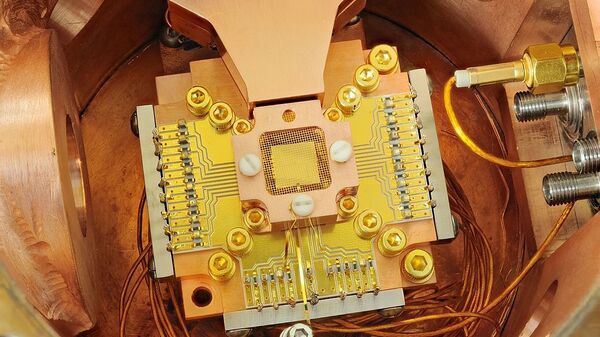Andrew Yang, an American entrepreneur and 2020 presidential hopeful, has expressed concerns over the recent news that Google has reached quantum supremacy.
“Google achieving quantum computing is a huge deal,” Yang has tweeted. “It means, among many other things, that no code is uncrackable.”
Google achieving quantum computing is a huge deal. It means, among many other things, that no code is uncrackable. https://t.co/AghqDAYs66
— Andrew Yang (@AndrewYang) September 21, 2019
The Elusive NASA Announcement
NASA recently published a Google research paper claiming that a new quantum processor is ushering humanity into the era of quantum supremacy.
The paper was originally posted on Sunday on NASA’s Technical Reports Server, according to news site Space Ref, and has since been deleted. Neither NASA nor Google have provided a reason for its removal, so it’s unclear whether the report was inaccurate or simply poorly-timed.
The cached version is available, however, and has caused quite a buzz in the tech community.
According to it, Google has created a prototype quantum processor able to solve a calculation — proving how random the numbers produced by a random number generator are — in 200 seconds. This task would take the world’s fastest conventional supercomputer, Summit, around 10,000 years.
“To our knowledge, this experiment marks the first computation that can only be performed on a quantum processor,” the report said.
The Future of Computing
Quantum computers operate on qubits (quantum bits) – the quantum version of the classical binary bit. While bits represent information by holding a position of 0 or 1, qubits, built out of superconducting materials, can also exist in multiple states and take two values at the same time. This mixed state is called ‘superposition’ and is the reason why quantum computers are viewed as the future of computing.
It is estimated that around 50 qubits is a theoretical threshold for classical computers to simulate what quantum ones could do. Beating that milestone would mean reaching quantum supremacy, which would give a massive boost to the existing capabilities in various fields, including chemistry and machine learning.
Move Your Data. Now
Quantum computers will outperform traditional machines in factoring large numbers — the foundation of public-key cryptography systems — meaning that they will be able to break any existing encryption.
"Anyone that wants to make sure that their data is protected for longer than 10 years should move to alternate forms of encryption now," Arvind Krishna, director of IBM Research, said last year.
Several tech giants have already entered the race to the quantum future. Intel announced a quantum computer that handles 49 qubits last year, while IBM, having already developed a number of less powerful quantum processors, is set to unveil a 53-qubit device next month.
NASA, in turn, has partnered with Google hoping that achieving quantum supremacy would accelerate the solution of computational problems in aeronautics, mission planning and scheduling.
Google’s computer expert John Martinis predicted in 2017 that his team would build a 49-qubit computer by the end of that year, but if Google’s paper is true, the company has gone even further: its state-of-the-art Sycamore computer has 54 qubits, but only 53 of them were reportedly used during the test. The company added that Sycamore’s computational power will continue to double every few years, allowing it to solve larger and more complex problems.



